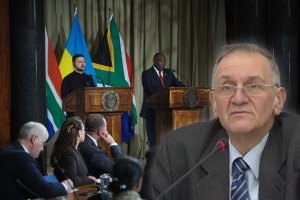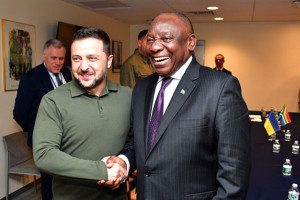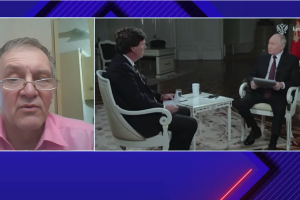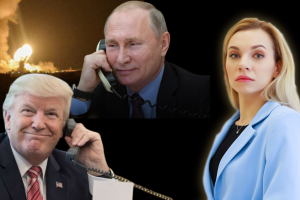How can Ukraine reach out to the Global South? || Omar Ashour
Source: Euromaidan Press
Russia courted the Global South for 30 years. Now Ukraine is trying to reverse the balance by reaching out to post-colonial nations that share its traumatic history
Since the full-scale Russian invasion, Ukraine has started to pursue a broader course in international politics, engaging not just with its existing partners but also seeking ties with countries of the Global South. It is these countries that Russia has managed to convince, that Ukraine is merely “a puppet of imperialist powers.” Meanwhile, before February 2022, Ukraine was invisible and often unknown in the countries of the Middle East, Asia, Africa, Latin America, and the Caribbean.
The aim of Ukraine’s outreach is:
- increase global awareness of Russian aggression;
- to elevate Ukraine’s status as an important player on the world stage among Global South peoples.
Moreover, the support of these countries is important for implementing Ukrainian President Zelenskyy’s initiative to hold a global peace summit to resolve the Russian-Ukrainian war.
However, reaching out to the Global South has been one of the challenges for Ukrainian diplomacy since Russia launched its full-scale invasion. According to an Institute for the Study of War report, Russia continues to position itself as a prominent security provider for authoritarian African regimes. Russian Deputy Defense Minister Alexander Fomin said Russia would soon sign additional military cooperation agreements with six more African countries, adding to the 30 out of 54 African states it already has defense arrangements with.
Why Ukraine needs the Global South
The Ukrainian Central European Forum 2023 in Lviv on November 7-8 discussed why Ukraine needs the Global South and how to reach out to it.
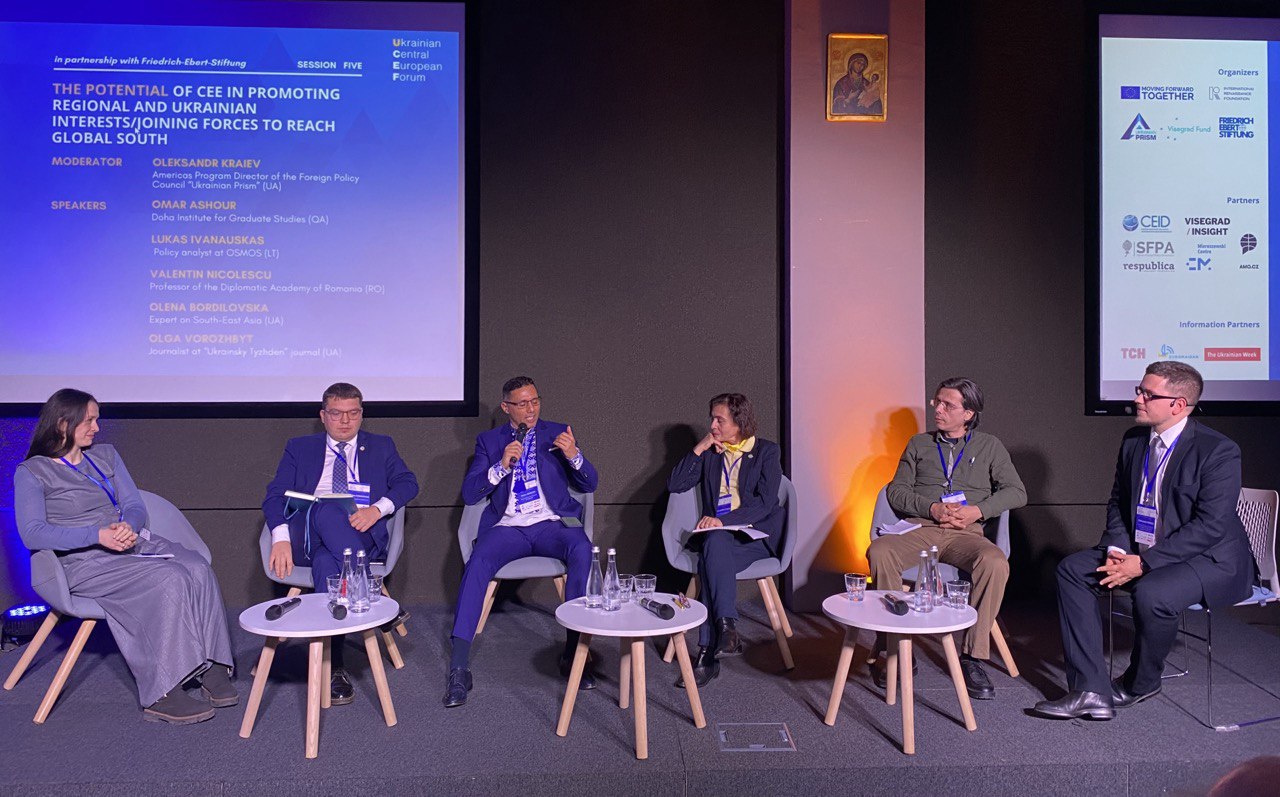 From left to right: Olha Vorozhbyt, Lukas Ivanauskas, Omar Ashour, Olena Bordilovska, and Valentin Nicolescu at the Ukrainian Central European Forum 2023 in Lviv on November 7-8. Credit: EuromaidanPress
From left to right: Olha Vorozhbyt, Lukas Ivanauskas, Omar Ashour, Olena Bordilovska, and Valentin Nicolescu at the Ukrainian Central European Forum 2023 in Lviv on November 7-8. Credit: EuromaidanPress
According to professor of Security and Military Studies in Qatar and the UK, Non-resident research fellow at the Democratic Initiatives Foundation Omar Ashour, the Global South holds almost 40% of the UN General Assembly votes.
The Global South countries have critical resources impacting Ukraine too. These range from some of the richest countries, like Qatar and Kuwait, to some of the poorest, like the Central African Republic and Sudan. And even though the latter are the poorest, they provide gold, sustaining Russia.
“The resource issue connects Ukraine back to economics. Many countries, including Middle Eastern ones like the notoriously sanctions-busting UAE, serve as loopholes in the sanctions regime against Russia in terms of investments and trade flows,”Ashour added.
In addition, the Global South is a reservoir of weapons that Ukraine desperately requires. Hundreds of thousands of tons of ammunition, and Soviet and post-Soviet weapons systems are stored in the Middle East and the larger Global South.
Omar Ashour explained that for instance, Ukraine will need air defense munitions for systems like the S-300 missile system, the Buk-M systems, and others. The West does not have many of them in terms of munitions and production capacity. However, the Western-made launchers and interceptors are very expensive, and Ukraine will need as many of them as possible to withstand Russia’s incessant missile attacks.
On the other hand, Ashour said the Middle East is extremely complex. The countries there have very different and conflicting policies, even if they are neighbours. Algeria and Morocco, the UAE and Qatar, Egypt and Libya have all either almost or gone to war, quite apart from the ongoing Arab-Israeli conflicts.
How can Ukraine reach out to the Global South?
Ukraine can either inspire the Global South or give them economic aid. Since Ukraine's financial resources and budget are dedicated to the war effort and other critical issues, according to Ashour, Ukraine has to inspire and charm them. Ukrainians are very capable of doing, so just like they charmed and inspired with the West.
Shared history
Omar Ashour, the professor of Security and Military Studies, made the point that Ukraine and many countries in Eastern Europe have experienced colonialism throughout history. This parallels the colonial legacy endured by regions like Africa, Latin America, and parts of the Middle East.
Ashour went on to characterize Russia’s current invasion of Ukraine as a colonial war, with Ukraine fighting for its liberation from Russia’s attempts to dominate and control it. He categorized Russia as a colonial power that temporarily got away with colonizing parts of Ukraine in the past through tactics like forced deportations of locals and resettling of Russian settlers – as evidenced by the over half a million Russian settlers moved into occupied areas like Crimea and the Donbas.
Rediscovering shared legacy
Professor of Security and Military Studies in Qatar and the UK Omar Ashour noted clear Middle Eastern legacies of Ukrainian support/
“I interviewed some officers from the Iraqi army, from the Algerian army, from the Egyptian army. All of them were trained by retired generals, and all of them were trained in the 70s and 80s by Ukrainian officers, not by Russian officers. The officers’ last names were all Ukrainian. At least in terms of the supporting wars of liberations in post-colonial countries by the Soviet Union, part of that was Ukraine, even on the military level,” Omar Ashour explained.
However, at the same time, he added, perceptions persist elsewhere that Ukraine acts as a Western imperialist puppet, albeit unfairly. Hence Ashour proposed Ukraine engage the Global South without US or UK support.





